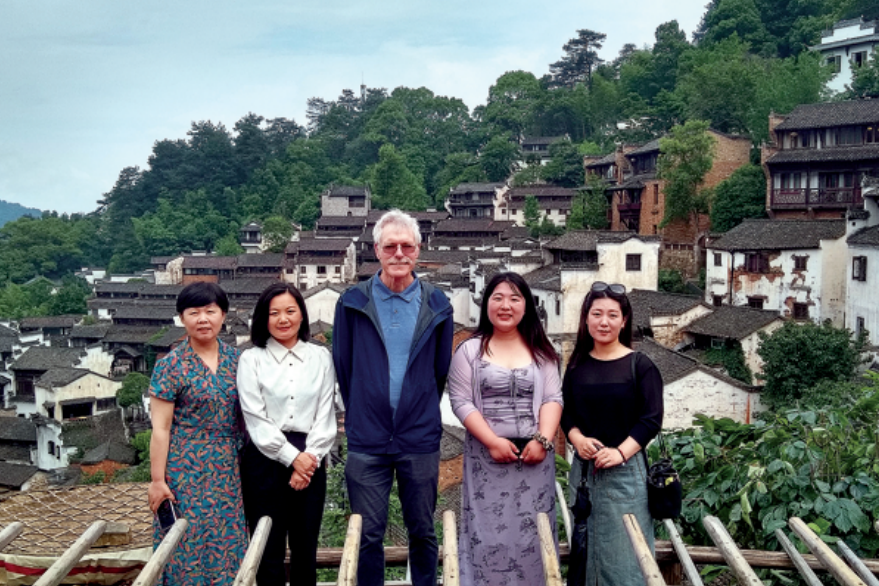What close Sino-Indonesian collaboration could mean


Indonesian President Prabowo Subianto concluded his three-day state visit to China on Nov 10, after which he headed to the United States, before attending the Asia-Pacific Economic Cooperation Economic Leaders' Meeting in Lima, Peru. The visit saw a number of investment deals sealed in key areas of green transition, including lithium, new energy vehicles and green energy development.
Prabowo's visit to China, his second since being elected president in February, speaks of the significance of the relationship. China is now Indonesia's biggest trading partner and a major investor in infrastructure and green projects.
The Indonesian president's target of 8 percent GDP growth, along with advancing energy security and green transition, is no mean feat amid all the global competition. With Indonesia importing 60 percent of its oil requirements, achieving national energy self-reliance and sovereignty sits high on his agenda.
All of these, coupled with Indonesia's aim of achieving carbon neutrality by 2060 and tripling its renewable energy capacity by 2030, means that developing a clean energy value chain and leveraging the China-Indonesia partnership are key priorities.
Significant strides were made by Prabowo's predecessor to attract green foreign investments, including from China. These efforts have brought in major Chinese players, such as electric vehicle makers Wuling and BYD and solar panel producer Trina Solar, to address both growing domestic demand and export markets.
In the nickel sector, where Indonesia meets half of the global demand, the country has attracted significant Chinese investments in nickel smelters and basic processing industries. While improvements in the supply chain are needed on many fronts, these investments have demonstrated how Chinese investors can move at the speed aligned with Indonesia's broader economic goals.
So far, Indonesia has met less than one-third of the $19 billion investment needed annually to achieve its climate targets, as outlined in its Enhanced Nationally Determined Contribution — a shortfall that also presents an opportunity.
With Indonesia aiming to nurture its historical ties in foreign relations while exploring emerging economic opportunities, China is a natural partner for deepening a green partnership.
A shared vision
Prabowo outlined eight missions for his administration, known as Asta Cita. Parts of this vision strongly emphasize self-reliance while developing Indonesia's economy, which bears some resemblance to China's vision of "a great rejuvenation of the Chinese nation". It is an avenue to weave a community with a shared future, preferably a green one.
Multiple transition initiatives are already emerging in the Asian region, such as the Just Energy Transition Partnerships and Japan's Asia Zero Emission Community initiative. What sets China apart in complementing these existing efforts is its strength in delivering low-cost, high-tech green industries, and its shared trajectory with Indonesia's aim to simultaneously grow and build global relevance, again, at speed.
While both countries are historically known as "coal giants", China's accelerated progress in the green space exemplifies how the global green transition can be viewed as an opportunity rather than as a risk.
As Southeast Asian countries compete to enter the green value chain, Indonesia's large economy and abundance of natural resources provide a strong footing, but the new, outward-looking president must move with haste.
The new government needs to put forward consistent policy signals for renewable energy buildup, incentives to build local industries, while safeguarding a just and transparent green transition. There are also a few things to bear in mind.
First, Indonesia's green plans and road maps need better unification and accountability. Chinese investors are both patient and hasty. Convening and building relationships is the start, but clear near-term targets that all parties can rely on are crucial to moving forward. Toward that end, the myriad sectoral road maps would benefit by having a unified road map, where ministerial plans complement the broader agenda of the president's office, rather than pulling in different directions.
Second, it is essential to remain responsive to the global market dynamics to stay relevant. The global green transition is not a linear process. Improvements in technologies and working standards are evolving simultaneously, addressing the various imperfections of the green value chain. As attention on environmental impact and labor standards intensifies, responsive actions are required from both the Indonesian government and Chinese investors.
Third, more attention should be given to showcasing green and responsible Chinese investment achievements in Indonesia and abroad. While challenges remain, there are also many positive stories that have largely gone untold to the wider Indonesian public.
Ultimately, in a world where the ground is constantly shifting, perhaps a mere "partnership" may prove insufficient, and a deeper bond between the two countries could be better forged toward the long road to greener economies. And what better way to begin the journey than with a warm visit to start charting the path forward together?
The author is managing director of Energy Shift Institute, an energy finance think tank focused on Asia's energy transition.
































